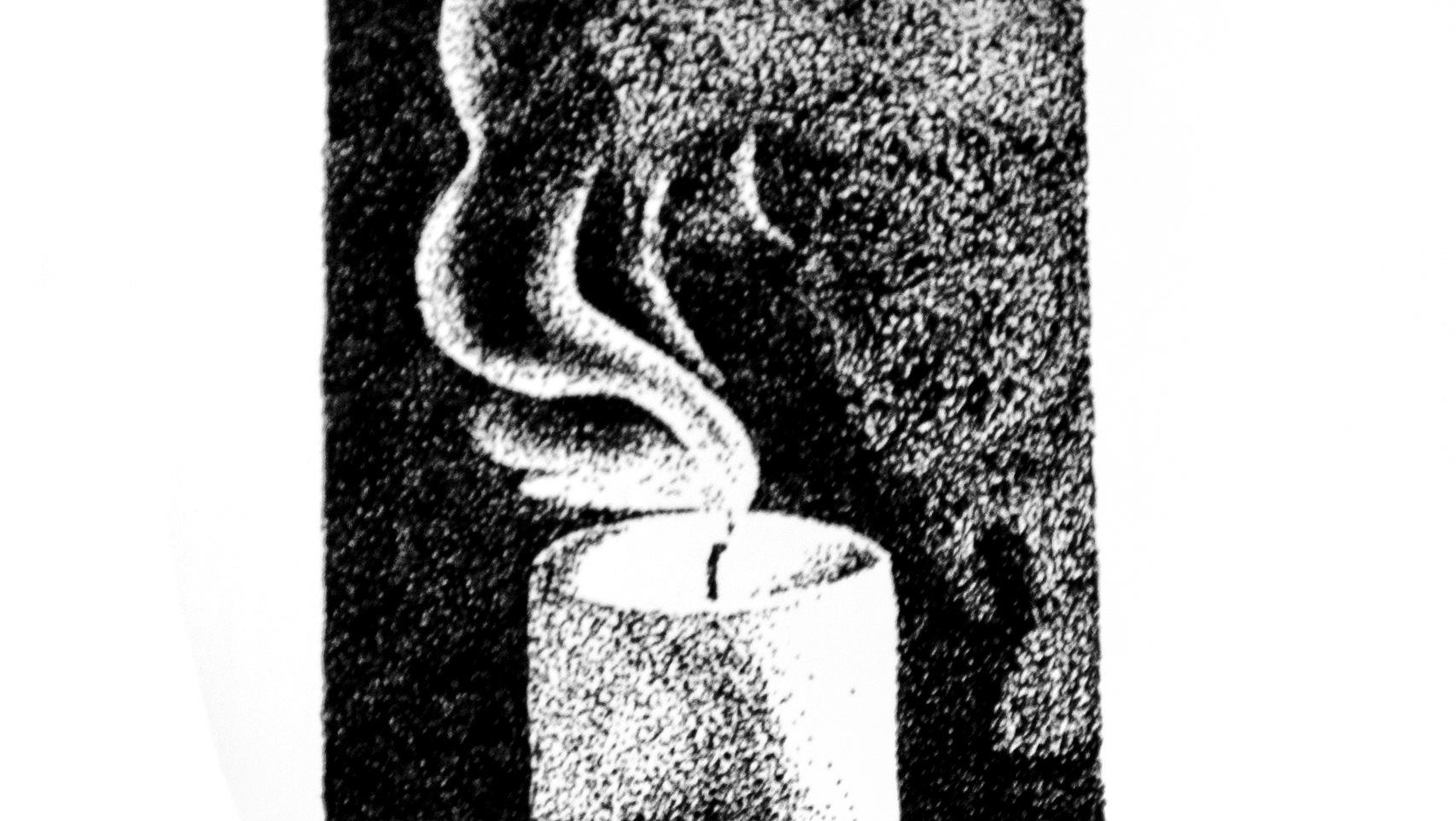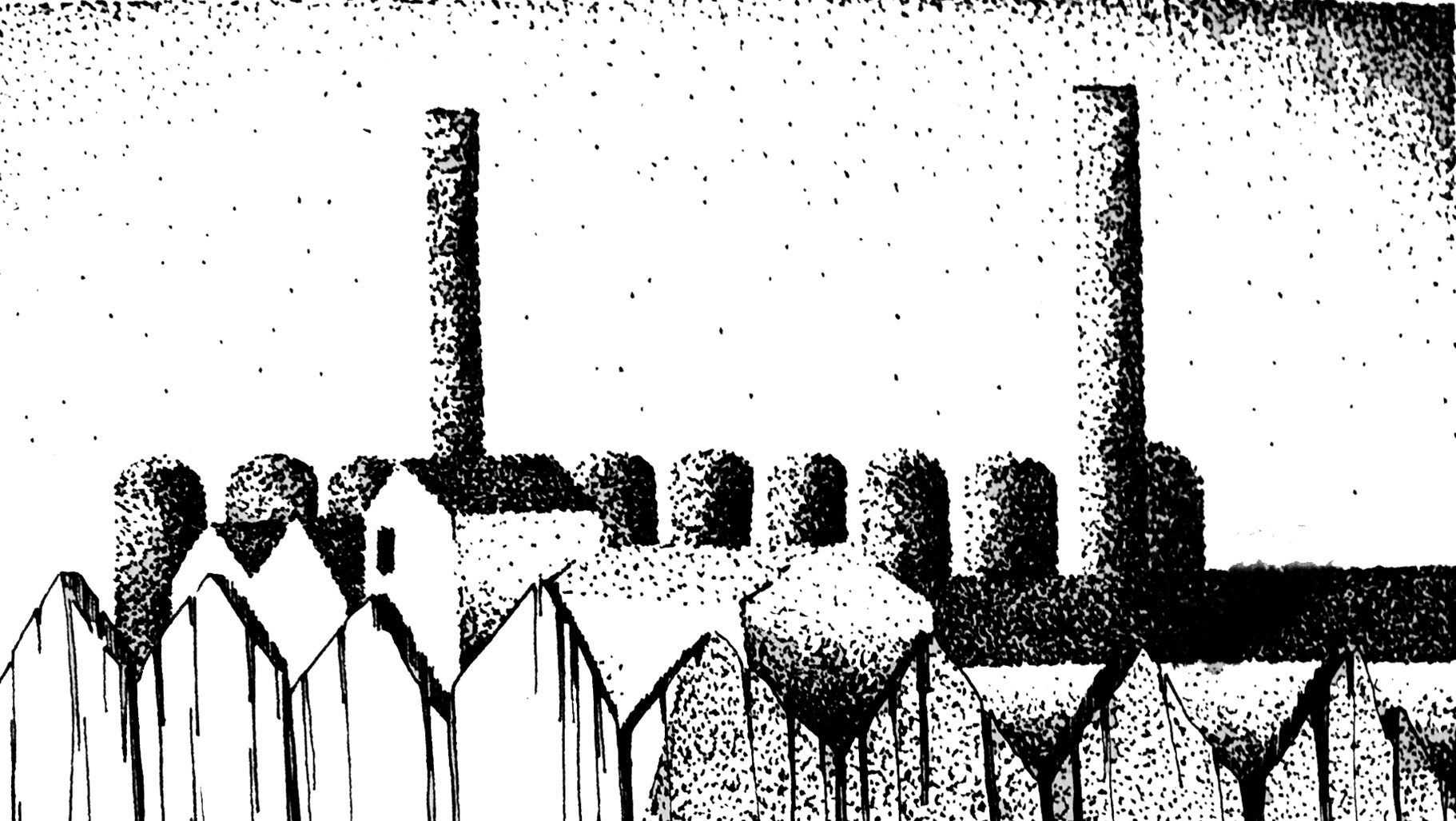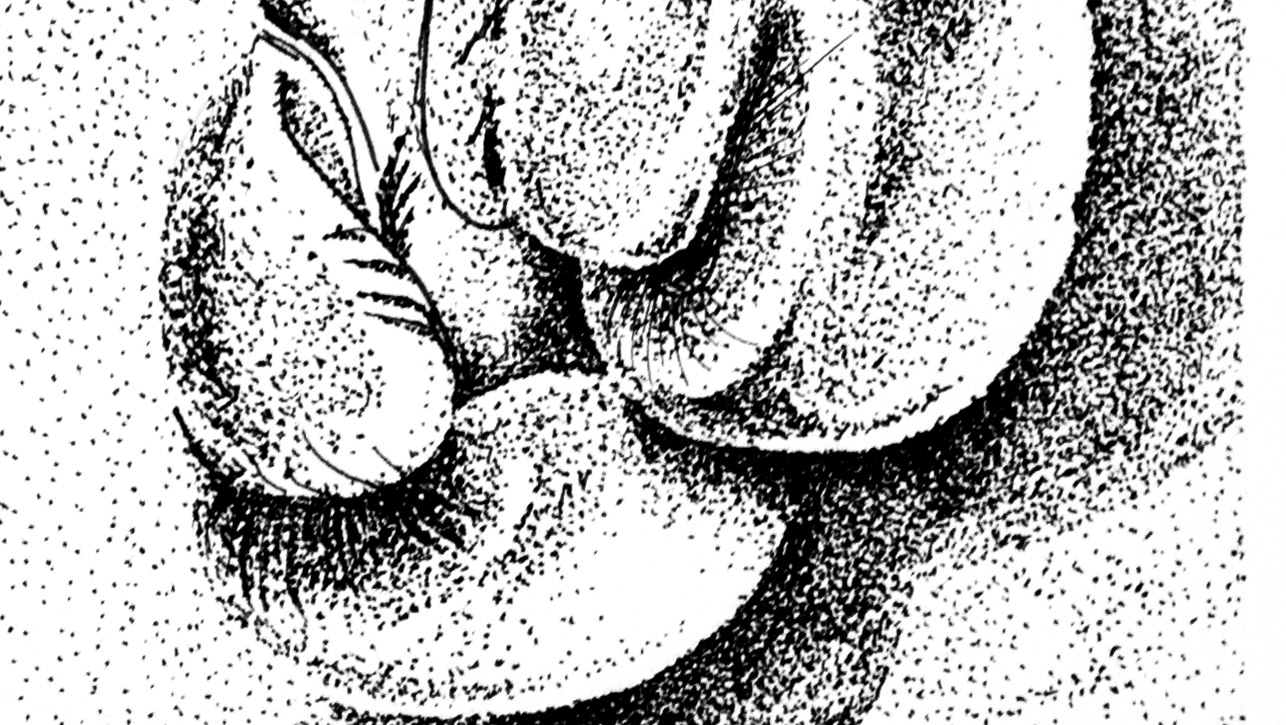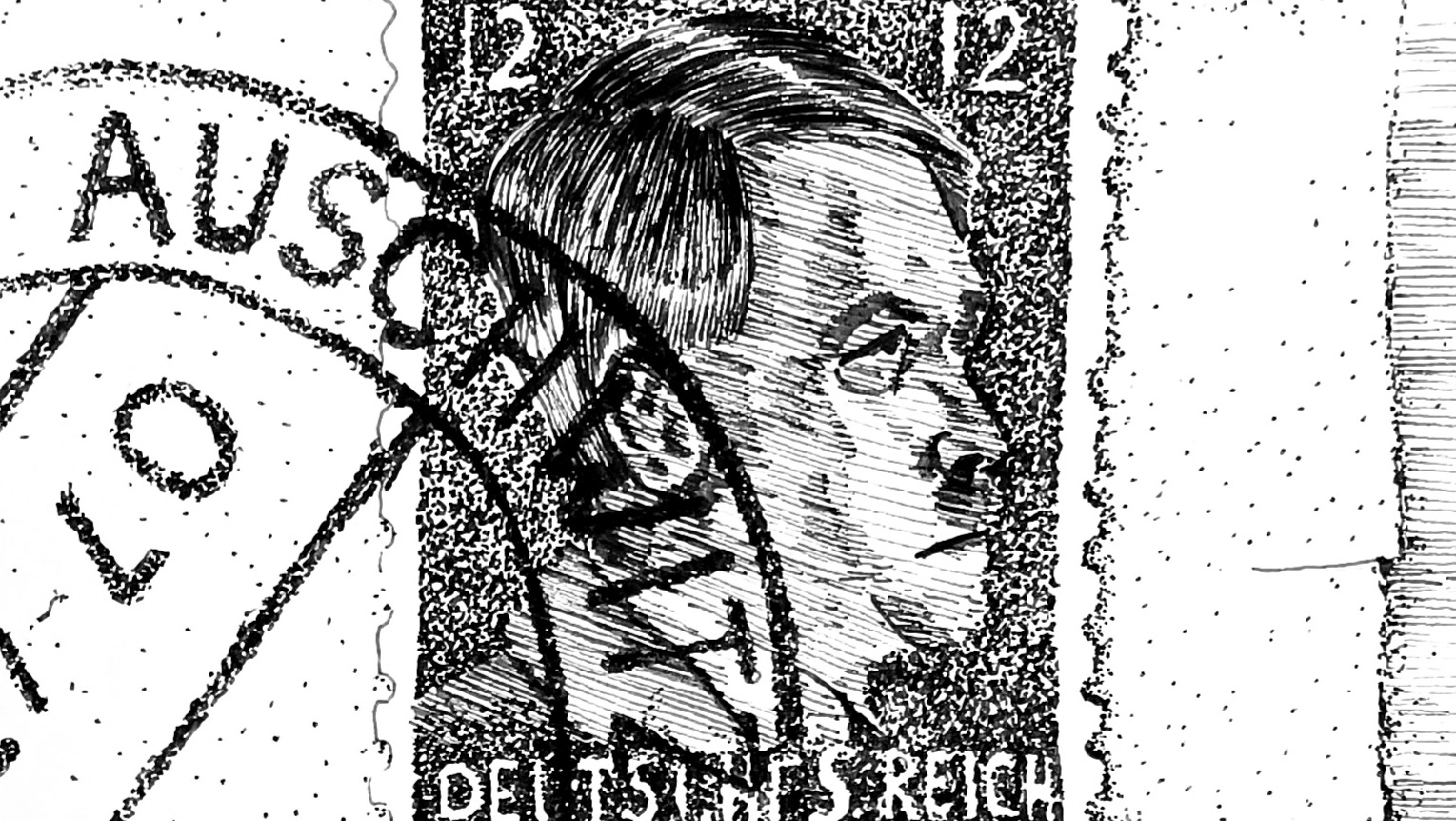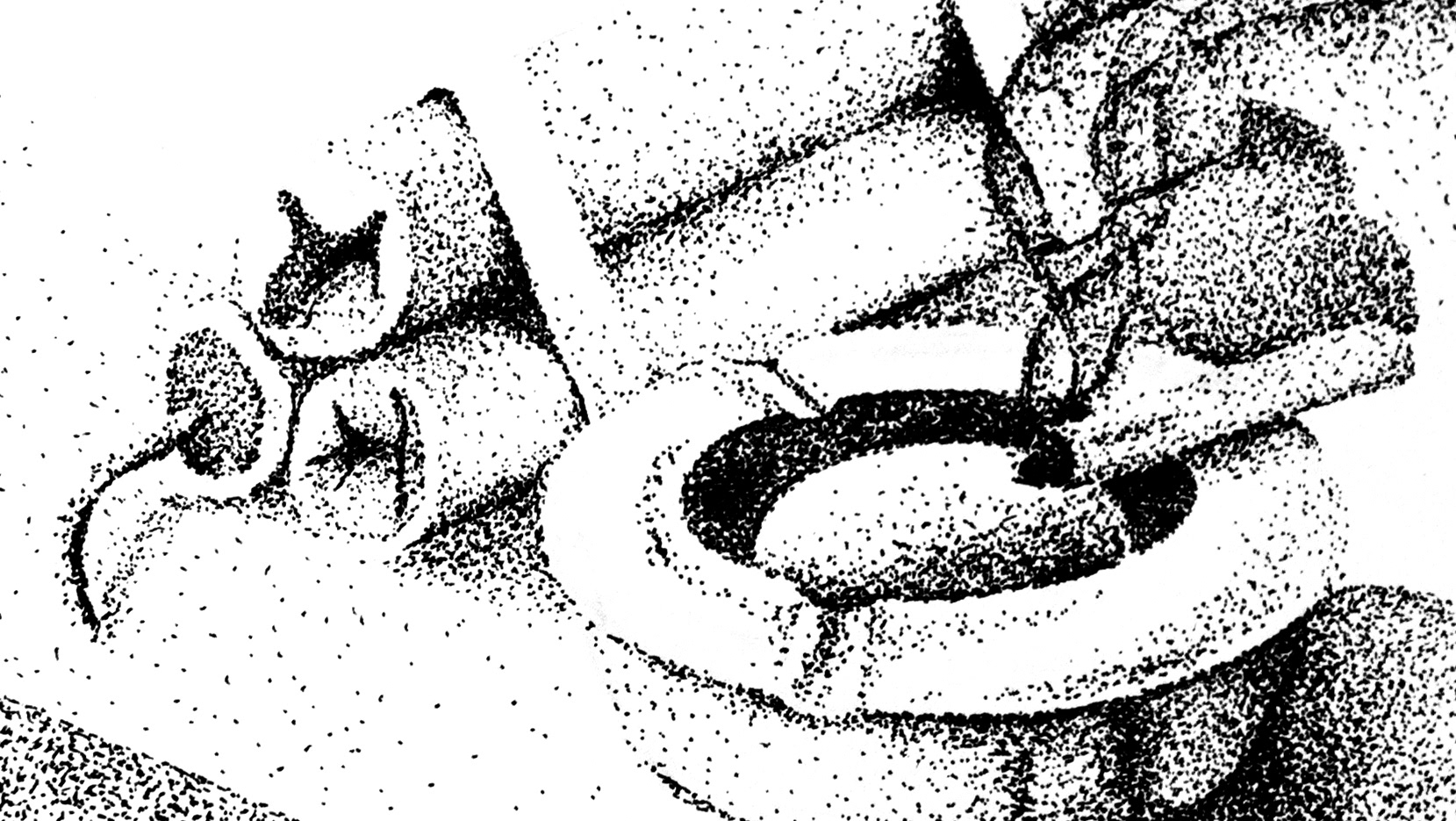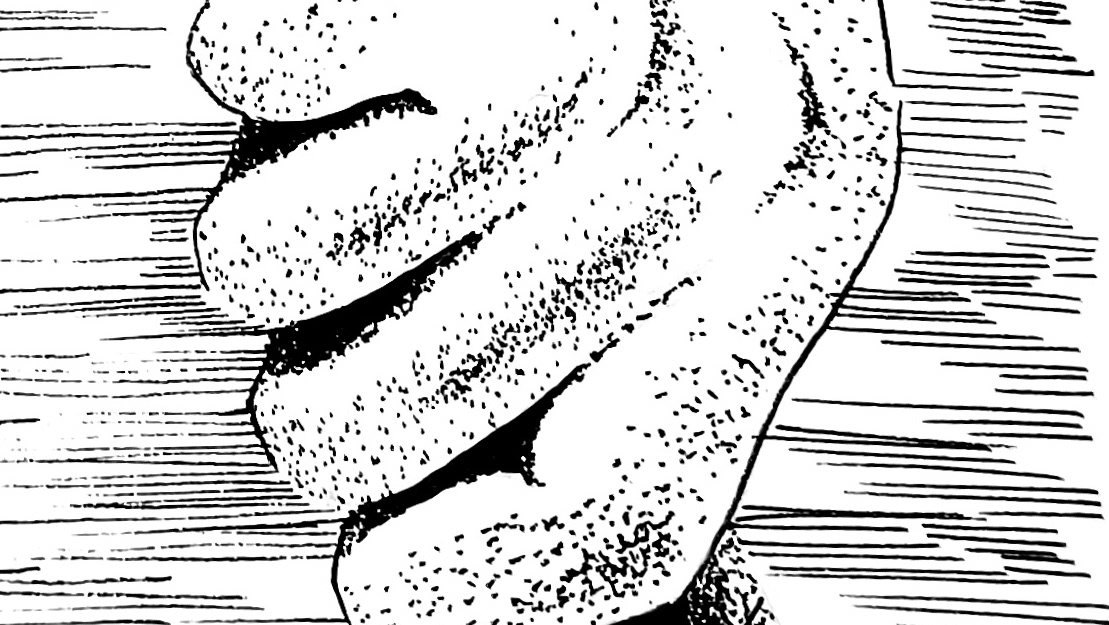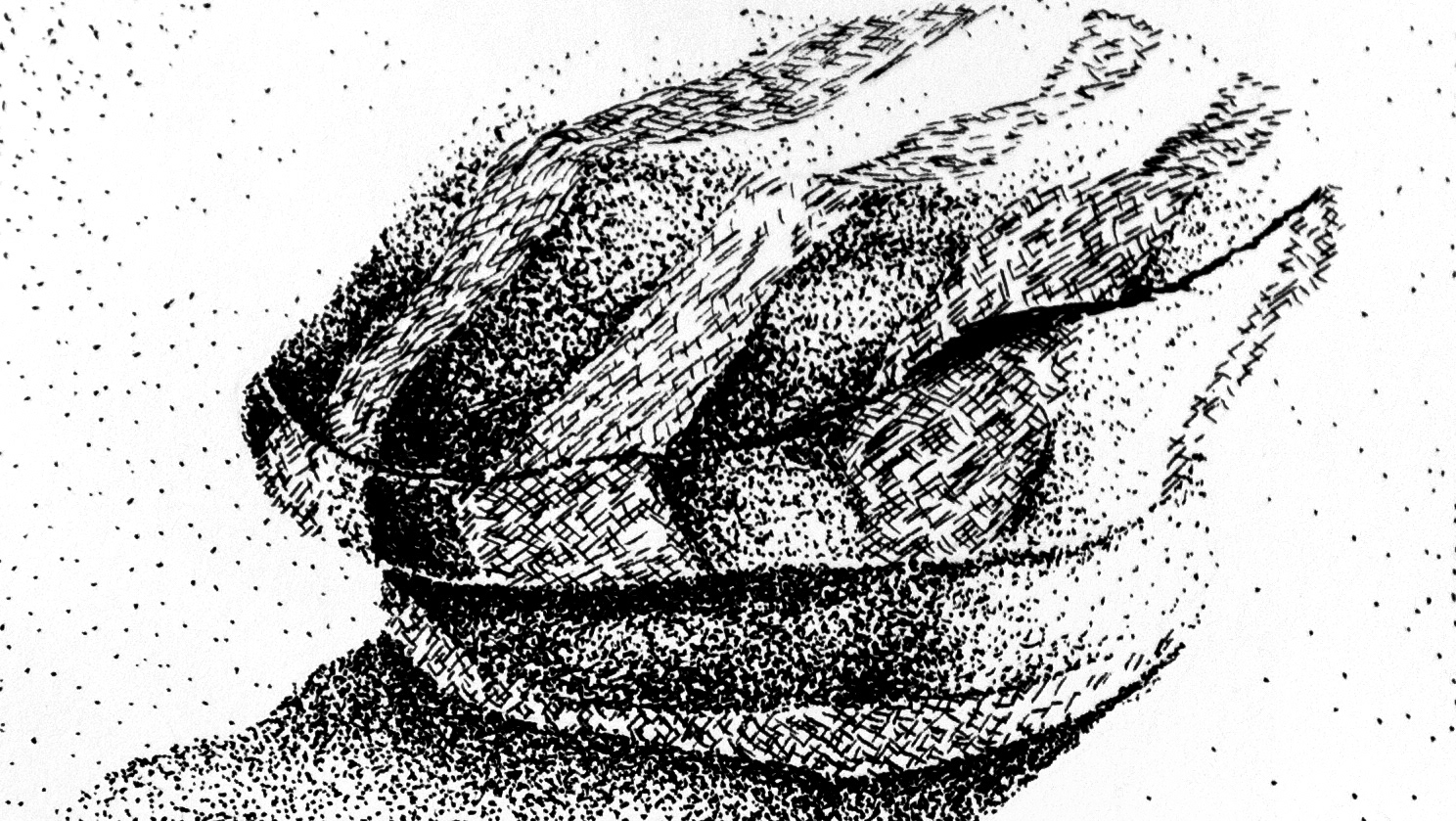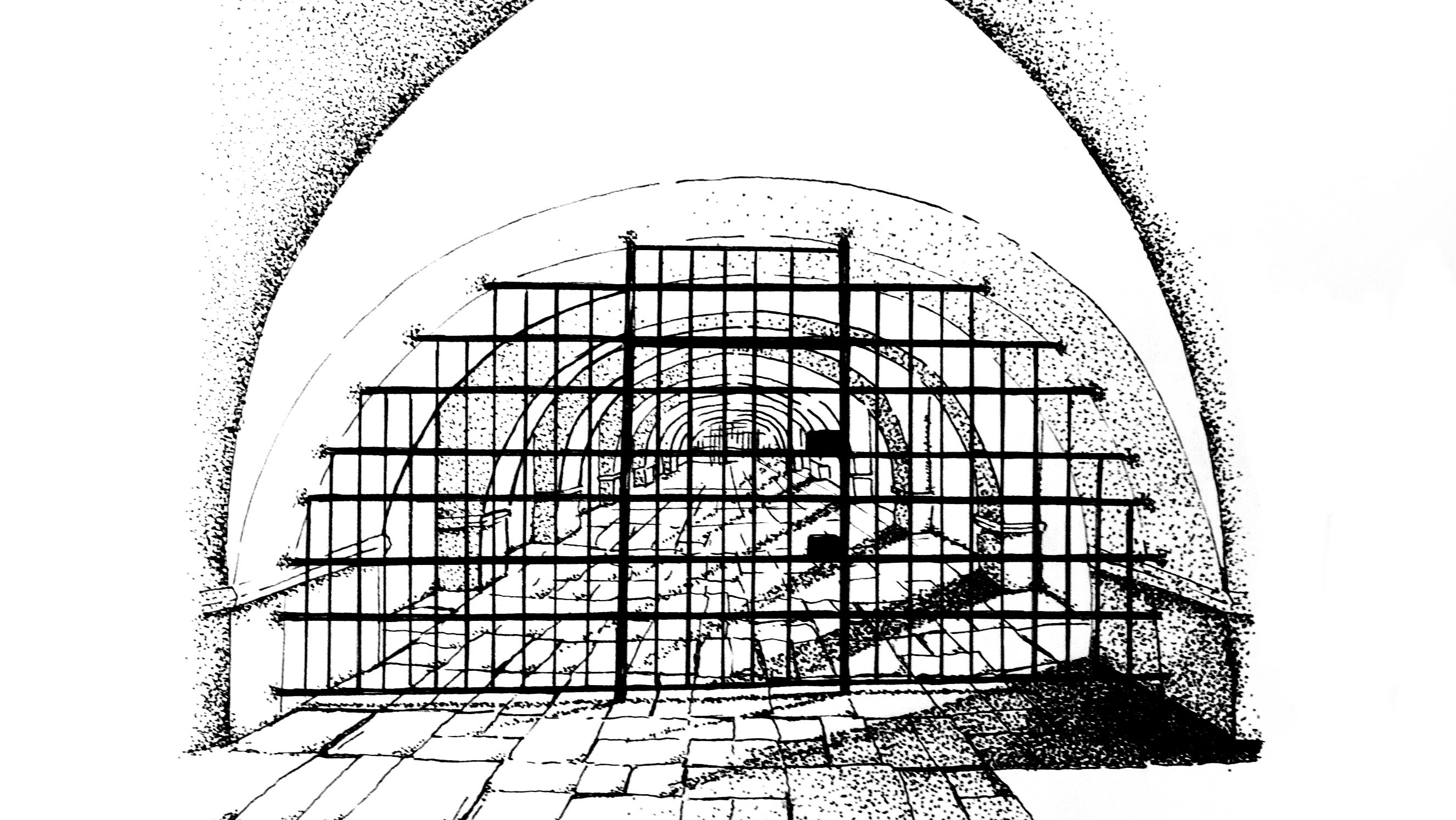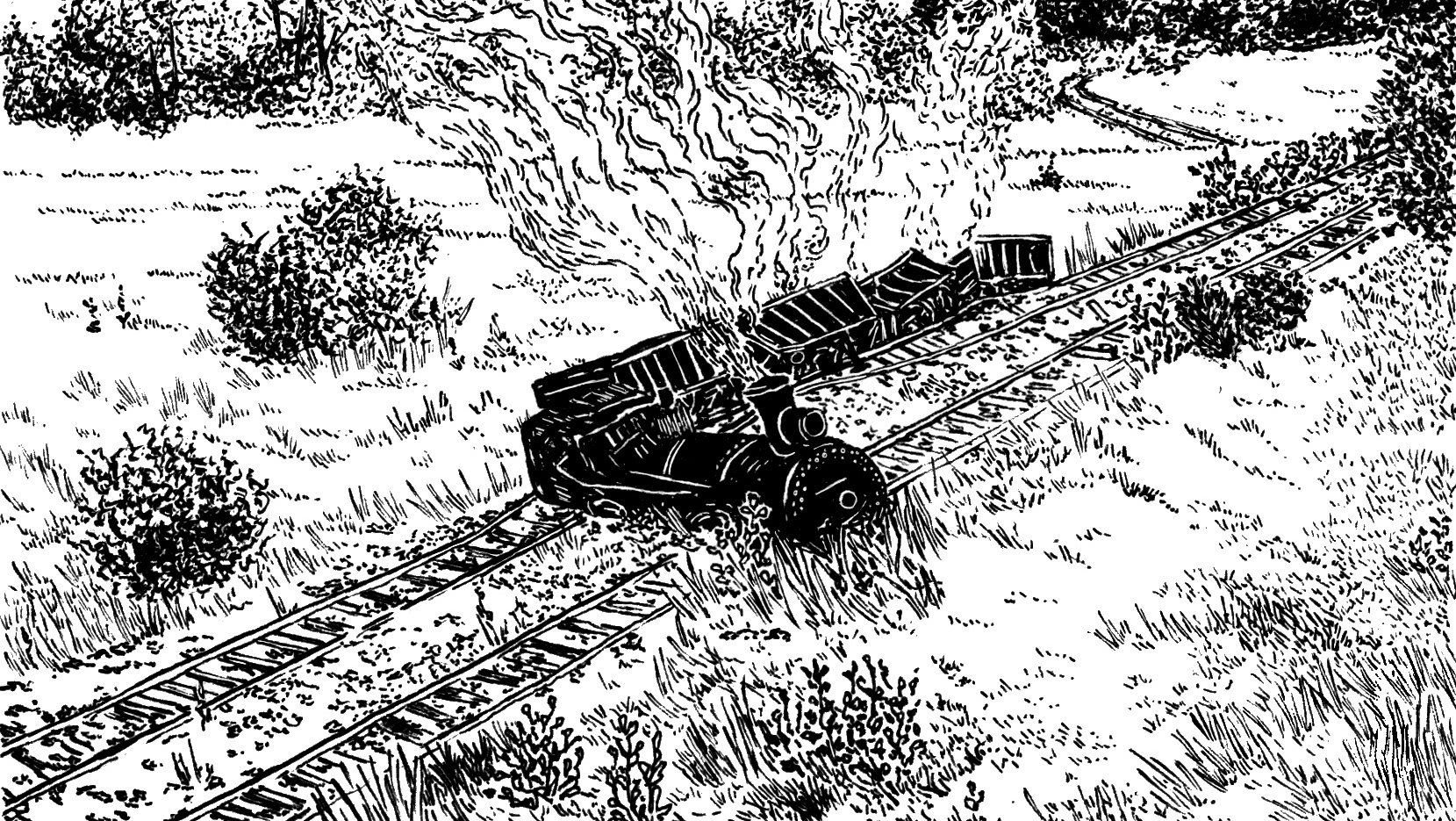Today is a day in early 1944, a cold day. Louis Brunet is going to the cinema tonight. A cinema in Auschwitz.
Many things have changed during the quarantine. And many things have stayed the same.
The end of the quarantine was a disappointment for sure, nobody wanted to go back to the kommandos or the roll calls. Yet for 6 months, they all found their force back, they regrouped, they reorganised, and this time, unlike in the Royallieu camp in Compiegne, the 45000 knew what to prepare for next, they knew they should prepare for the worst.
To Louis Brunet's surprise, the 45000 had become veterans. They had survived all this time, it made them look special. They had been quarantined for so long, it made them look like lucky people, lucky charms even. The other prisoners came to them, asked them questions, gave them food in exchange for shaking hands in front of a guard or a SS. The 45000 were now old numbers, unlikely survivors, exceptions. Louis Brunet was a funny man, he always had a joke to lighten the mood, but since he was back in the camp, everyone around him laughed harder at his jokes, wanted to please him more. He may be funny, Louis knew he wasn't that funny.
The camp has changed, its commandant has changed, Hoess was replaced by Arthur Liebehenschel. His views and his orders were different than Hoess, the prisoners were to work better for the war effort. To him, a dead man was not helpful to the war effort, so from that point on, they were to be treated better, to be fed more, to have shorter roll calls and warmer clothes. They were to be entertained even, which is why the movie theater, once reserved exclusively to the SS and kapos, was now sometimes opened to prisoners. Not All prisoners though...
When the 45000 got out of the quarantine, the living conditions had improved... except for the jewish, homosexuals and tziganes, their living conditions were never to be improved. The disproportions were unbearable, on one side, men were annihilated, on the other, they could go to the cinema.
Disproportions like that reminded Louis Brunet of France. Not as terrifying of course, but the jewish population had been ostracised there too, and Louis didn't even notice that much until now.
He worked as a carpenter and he had the opportunity to work for a couple of weeks at the Boulogne Billancourt cinema studios in 1940. Those were legendary studios, where movies like Hotel du Nord, la grande illusion, la bete humaine, had been made. France had just lost the war, the Vichy government was implementing its first laws, and even the cinema industry was affected.
The last shoot was a year earlier, La mode revee, by Marcel L'Herbier, nothing else so far. Most of the crews, actors, technicians, had fled to the south of France, a huge chunk didn't have any intention of coming back. The studios were empty, nobody was working
There were plans for new feature films, but they would have to follow specific guidelines. Jewish people were not advised to work anymore, films should be comedies, light hearted stories promoting values such as family, strength, conservatism.
Some refused, some needed money. Some big actors didn't mind, some prefered to leave the country. And some, like Josephine Baker or Jean Gabin, joined De Gaulle general and fought overseas with the Allies. Louis didn't think much about it, he needed money, and he didn't think his job as a carpenter had much to do with those silly rules.
Louis worked there for 2 weeks updating the studio structure, and then he was arrested as a communist on the 26th of October 1940. He was transferred to Aincourt, where he met with Coutelas, Lambotte, then they were all transferred once more to Royallieu. Louis didn't think much about the jewish camp, separated from the communist camp. Separations, there again. .
The disproportion is gigantic in Auschwitz, but it was already there too, in France. It had been there for a while, the antisemitism, like a shadow slowly covering everything, so slowly that nobody paid attention... Until it was too late.
Back to the present, Louis can enjoy a cinema screening, but how can you enjoy this while women, men and children are being murdered a few miles away? Louis often felt numb about those crimes, he had seen so many, like everyone else, repetition makes one used to anything. But this time, Louis stops, he can't watch a movie, he can't find a joke to tell, ro lighten the mood. He can't.
They know that they should stay together, share their food. They know that Robert Lambotte, Georges Guinchan, Roger Abada and a few others should stay in touch with the german, austrian and polish resistance groups. Like Eugene Garnier should keep his contacts with the 31000, help in any way. Like Louis Eudier, they should keep on sabotaging the german war effort, everything to help the allies, even at their level.
Mostly, they need to survive, there is much to tell about what has happened here. Only 150 45000 remain.
Notes
Thank you for listening to this episode of 31000/45000, the story of 2 trains of french members of the resistance. My name is Matthieu Landour Engel.
This episode is about Louis Brunet and the return of the 45000 from the quarantine.
It is a very delicate episode therefore I will try to be thorough with my explanations. I apologise if I am not being clear enough.
As I mentioned before, the complex of Auschwitz-Birkenau was gigantic, and Birkenau was the biggest place of all, as well as the center for the extermination of the european jewish population. In comparison, Auschwitz was far smaller, you could walk through it in 10 minutes roughly. Auschwitz was a place where there were prisoners, like the remaining 45000 for example, it was also a place where many of the Nazi administration's quarters were. The SS enjoyed good living conditions in Auschwitz, they had access to good food, to a lot of alcohol, to games, …. At one point, a water reservoir was converted as a swimming pool, there was a theater, and a movie theater. Those places were reserved to the SS, sometimes to kapos and guards, and also, under the ruling of Liebehenschel, life conditions were loosened so some prisoners had access to it. Obviously, those prisoners were exceptions, not the rule, and the jewish prisoners and those under the Nacht und Nebel decree certainly didn’t have any access to it. At that time, the 45000 and the 31000 were not under the Nacht und Nebel decree anymore. Those equipments only existed in Auschwitz, certainly not in Birkenau, the biggest place of all. Those equipments were also used as propaganda tools, in order to give the illusion that the camp was not an extermination camp, but more of a nice camp with leisure activities.
Holocaust deniers often use the brief presence of a swimming pool or a movie theater as evidence that there was no extermination, which is why it feels delicate to mention that. Those 2 elements aren't incompatible, the brief presence of those equipments doesn't cancel the extermination process, which happened further away.
There were also orchestras in Auschwitz and Birkenau. There were more than one, and they had different purposes. One purpose was to entertain the SS administration, another was a propaganda purpose, once more to show a nice camp with clean musicians playing well rehearsed marching bands. The orchestras main task was to play in the morning and the evening, as the kommandos went to work and returned to the camps. Playing in the orchestra was a good kommando, as you were slightly better fed, yet it didn’t protect from violence or the spread of diseases. Tunes were mostly marching bands or classical tunes such as the Merry widow, the Barcarolle, the Tales of hoffman, and so forth. Those tunes later became traumas for some surviving prisoners, who couldn’t listen to music without being reminded of the terror of the camps.
I’m speculating whether Louis brunet or the 45000 had access to the movie theater, it was normally reserved to the SS or kapos, but given the 45000’s new statue, as old numbers, it’s not entirely impossible that some of them have had at one point during this period access to it.
I also assumed that Louis Brunet felt uneasy with his veteran status and uneasy between his condition and the condition of the european jewish population. He may not have felt that, I can't prove any of it, but I assumed some 45000 felt this, maybe Louis Brunet did.
Liebenhenschel's time was a little softer than Hoess, that doesn’t mean it wasn’t deadly. It was also quite brief, Hoess replaced him once more shortly after.
I briefly mentioned the state of the french cinema, music and the arts under the german occupation. I’m only going to focus on Josephine Baker because she was an incredible woman. Josephine was an american born woman, she rose to fame as she arrived in France. During the war, she was recruited by the french military intelligence and for years worked as a spy, gathering informations for the french intelligence. She worked for the resistance in North Africa and received the resistance medal. She was also made chevalier of the legion d’honneur by the general De Gaulle, who recognised the importance of her contribution to the Allies victory. She was a fierce member of the resistance.
Other french celebrities, members of the resistance, existed of course, people like Jean Gabin, Marcel Marceau. Most artists chose to stay away from the war, others didn’t do anything and grew their careers.
Finally, Louis brunet survived the deportation, yet he died at the same time, according to the french administration. It took him a long time to get his papers back and become alive again for the administration.
I have been trying to find Louis Brunet’s relatives, unfortunately, my research was unsuccessful. If by any chance, you know of someone related to him please let me know, I would be very pleased to get in touch and make sure the text I wrote doesn’t contain any errors.
My sources for this story mostly come from the book Red triangles in Auschwitz, by Claudine Cardon Hamet, le convoi du 24 janvier by Charlotte Delbo, the website deportes-politiques-auschwitz.fr, memoire vive, the foundation for the memory of deportation website , the Maitron website, and the fantastic website auschwitz.org
Thank you very much for your attention, next episode will be about Therese Lamboy and the sewing department.
Aujourd’hui nous sommes au début de l'année 1944, un jour froid. Ce soir, Louis Brunet ira peut-être au cinéma. Un cinéma à Auschwitz.
Tant de choses ont changé depuis la quarantaine, tant de choses sont restées les mêmes.
La fin de la quarantaine a été une déception, personne ne souhaitait retrouver les kommandos ou les appels. Mais, pendant presque 6 mois, les 45000 ont repris leurs forces, ils se sont regroupés, se sont réorganisés, et cette fois-ci, contrairement à leur départ du camp de Royallieu, ils savent à quoi s’attendre, ils savent qu’il faut se préparer au pire.
A la surprise de Lois Brunet, les 45000 sont devenus des vétérans. Tout ce temps de survie les a rendus spéciaux, leur quarantaine si longue leur donne un statut bien particulier. Les autres prisonniers viennent à eux, leur posent des questions, leur donnent de la nourriture en échange d’un serrage de main devant un garde ou un SS. Les 45000 sont désormais des anciens numéros, des survivants, des exceptions. Louis Brunet était un homme à l’humeur facile, il avait toujours un bon mot pour redonner le sourire, mais depuis son retour dans la vie du camp, on riait plus fort à ses blagues, on souhaitait lui faire plaisir. Louis se pensait drôle, mais il n'était tout de même pas si drôle que cela.
Le camp avait changé, ainsi que son commandant, Hoess avait été remplacé par Arthur Liebehenschel. Il voyait les choses différemment que Hoess, il souhaitait que les prisonniers soient plus efficaces pour l’effort de guerre. A ses yeux, un homme mourant n’avait pas d'utilité, il fallait les traiter mieux, les nourrir mieux, raccourcir les appels et les habiller mieux pour l’hiver. Il fallait les divertir aussi, d'où l'ouverture a plus de prisonniers à l'accès au cinéma, auparavant réservé exclusivement aux SS et kapos. Mais tous les prisonniers n' avaient pas forcément accès…
Lorsque les 45000 sont sortis de quarantaine, les conditions de vie s'étaient améliorées, … sauf pour les juifs d’Europe, les homosexuels et les tsiganes, il n’a jamais été question d'améliorer leur vie à elles et eux. Les différences de traitement étaient insupportables, d’un côté on assassinait, de l’autre on pouvait aller au cinéma.
Ces disproportions rappelaient à Louis Brunet celles en France. Ca n'était pas comparable, pourtant les racines de l'extermination étaient déjà présentes, et Louis ne s’en était pas rendu compte.
Il travaillait comme menuisier, et il avait eu l'opportunité de travailler pour quelques semaines dans les studios de cinéma de Boulogne Billancourt en 1940. Les studios étaient réputés, des films comme Hotel du Nord, la grande illusion ou la bête humaine y avaient été tournés. Lorsque la France perdait la guerre et le régime de Vichy appliquaient ses premières lois antisémites, même l’industrie du cinéma était affectée.
Le dernier tournage, la mode rêvée de Marcel L’Herbier, datait déjà d’un an, il ne s'était rien déroulé la bas depuis. Les techniciens, les acteurs, la plupart avaient fui au Sud, et une partie n'avait pas l'intention de revenir. Les studios étaient vides, le travail était rare.
Il y avait bien des plans pour de prochains projets de long métrages, mais ceux-ci devaient suivre une série de règles particulières. Il y était conseillé de ne pas faire travailler des juifs, les films devaient être des comédies, des histoires légères à la gloire de valeurs comme la famille, la force, le conservatisme.
Certains refusaient, d’autres ne pouvaient pas se le permettre Certains n’y accordaient pas d'importance, d’autres préféraient quitter le pays. D’autres encore, comme Joséphine Baker ou Jean Gabin décidaient de se battre aux côtés du général De Gaulle et des Alliés. Louis n’y avait pas fait attention, il avait besoin d'argent, et il n’estimait pas que son travail de menuisier avait vraiment à voir avec ces regles absurdes.
Louis travaillait deux semaines là-bas, a mis en ordre des structures au sein du studio puis il etait arrêté comme communiste le 26 Octobre 1940. Il était transféré à Aincourt, ou il faisait la connaissance de Coutelas, Lambotte, puis ils etaient transférés à Royallieu. Le camp séparait les politiques des juifs, les américains des russes. Deja la-bas, les juifs étaient moins bien traités que les autres.
A Auschwitz, tout est bien pire, mais les racines du mal étaient en France aussi. Depuis quelque temps, l’antisemitisme rampait, comme une ombre englobant tout, lentement mais sûrement, sans qu'on y fasse attention...jusqu'à ce qu' il soit trop tard.
De retour au présent, Louis pourrait peut être aller au cinéma, mais un tel divertissement est il possible pendant que, a seulement quelques kilomètres de là, des hommes, femmes et enfants sont assassinés. Louis avait souvent trop pris l’habitude de ces crimes, comme tout le monde, la répétition rend souvent insensible.Mais cette fois-ci, non, Louis ne peut pas aller au cinéma, il ne peut pas trouver un bon mot pour détendre l'atmosphère. il ne peut pas.
Lui et les autres savent qu’ils doivent rester ensemble, s’entraider, partager. Ils savent que Robert Lambotte, Georges Guinchan, Roger Abada et quelques autres doivent conserver leurs rapprts avec la résistance allemande, autrichienne, polonaise et juive. Tout comme Eugène Garnier et d’autres doivent rester en communication avec les 31000, aider autant qu’ils peuvent. Comme Louis Eudier, ils doivent continuer à saboter ce qu'ils peuvent, tout pour aider les alliés.
Et surtout ils doivent survivre, il y a tant à dire sur cet endroit, à témoigner. Seuls 154 45000 sont encore debout.
Notes
Merci d’avoir écouté cet épisode de 31000/45000, l’histoire de deux trains de membres de la résistance française. Mon nom est Matthieu Landour Engel.
Cet épisode portait sur Louis Brunet et le retour des 45000 après leur quarantaine.
Cet épisode est très délicat, je vais donc faire mon possible pour être le plus précis possible. Je présente mes excuses si je ne suis pas assez clair.
Le complexe d’Auschwitz Birkenau est un lieu très très étendu, Birkenau encore plus. et Birkenau regroupait aussi différentes zones d’extermination de la population juive d'Europe, En comparaison, Auschwitz était bien plus concentré, l'on pouvait marcher d’un bout à l'autre en 10 minutes. Auschwitz était un camp de concentration de prisonniers, c'était aussi la ou les bâtiments administratifs des SS se trouvaient, ainsi que leurs quartiers. Les SS eux-mêmes souhaitaient profiter de bonnes conditions de vie, ils avaient accès à de la bonne nourriture, beaucoup d’alcool, des jeux, …. A un moment, un réservoir d'eau avait même été converti en piscine, il y avait un cinéma, un théâtre. Ces endroits étaient exclusivement réservés aux SS, parfois aux kapos, et , pendant le commandement de Liebehenschel, certaines catégories de prisonniers y ont eu accès aussi Évidemment, ceux qui y ont eu accès étaient l’exception, et les prisonniers juifs, qui faisaient l’immense majorité du camp, n’y avaient aucun accès, ni les prisonniers de Birkenau, Monowitz ou des sos camps. Il est aussi à noter que ces équipements ont servi un temps comme outil de propagande, afin de donner l’impression, une impression fausse, que le camp n'était pas un centre d'extermination mais un simple camp de loisirs.
Les négationnistes de l'holocauste utilisent souvent la presence de cette piscine ou du cinema comme preuve qu’il ny a pas eu d’extermination, c’est la raison pour lquelle ce sujet est si delicat. Je tiens à souligner que ces équipements ne sont pas incompatibles avec l’extermination qui a eu lieu quelques kilomètres plus loin.
Il y avait aussi plusieurs orchestres à Auschwitz et Birkenau, ils avaient des rôles différents. L’un d’eux était de divertir le corps administratif, ou autre avait un rôle de propagande, afin de donner une image de camp agréable avec son propre orchestre. Le rôle principal de l'orchestre était de jouer le matin et le soir, au départ et au retour des kommandos de travail.
faire partie de l’orchestre était en soit un kommand, un bon kommando même, on y était mieux nourri, mais cela ne protégeait pas de la violence ni des maladies.Les morceaux comprenaient généralement la Barcarolle, la veuve joyeuse, les contes d'Hoffmann, … Ces morceaux sonr, par la suite, devenus des sources de traumatisme pour certains des survivants, ils ne pouvaient plus écouter ces morceaux sans avoir l’impression de retourner dans les camps.
Que Louis brunet ait eu ou non accès au cinéma n’est que spéculation de ma part. L’espace était normalement réservé aux SS, aux kapos et à quelques privilégiés. Vu le nouveau statut des 45000, devenus des vétérans, de vieux numéros, il n’est pas impossible que l’un d’eux ait pu avoir accès à ce lieu. J'ai aussi supposé que Mr Brunet se sentait mal à l'aise avec son nouveau staut, mal a l’aise avec la disproportion de traitement des juifs d’Europe. Je ne peux pas le prouver, là aussi j’ai suppose que certains 45000 s’en emouvaient, et que Louis Brunet aurait pu être l 'un d'eux.
Le commandement de Liebehenschel était moins volent que celui de Hoess, il restait tout de même violent. son commandement a aussi été bref, Hoess a repris le commandement assez vite par la suite.
J’ai brièvement mentionné l'état du cinéma français sous l’occupation allemande. Je vais vous donner quelques explications supplémentaires sur Josephine Baker, une femme absolument remarquable. Joséphine était d’origine américaine, elle a connu le succès à son arrivée en France comme chanteuse, danseuse, performeuse. Pendant la guerre, elle a été recrutée par les services d’intelligence de l'armée et elle a travaillé des années durant comme espionne. Elle a travaillé avec la résistance en Afrique du Nord et a reçu la médaille de la résistance, elle a aussi reçu la légion d’honneur par le général De Gaulle, qui reconnaissait l'importance de sa contribution à la victoire des alliés. Elle était une résistante phénoménale,
Josephine Baker n'était pas seule, d'autres célébrités, comme Jean Gabin, Marcel Marceau, ont beaucoup contribué. Mais beaucoup d'artistes ont préféré rester loin de la guerre, certains aussi ont profité de l’occupation pour améliorer leur carrière.
Louis Brunet a survécu à la déportation, il était aussi mort aux yeux de l’administration française. Il lui a fallu beaucoup de temps pour retrouver ses papiers et ses droits aux yeux de l'administration,
Mes sources pour cet épisode viennent du livre Triangles rouges à Auschwitz de Claudine Cardon Hamet, le convoi du 24 janvier de Charlotte Delbo, le site deportes-politiques-auschwitz.fr, memoire vive, la fondation pour la mémoire de la déportation, le Maitron website, et le site fantastique site auschwitz.org
Merci pour votre attention, le prochain episode portera sur Therese Lamboy.
